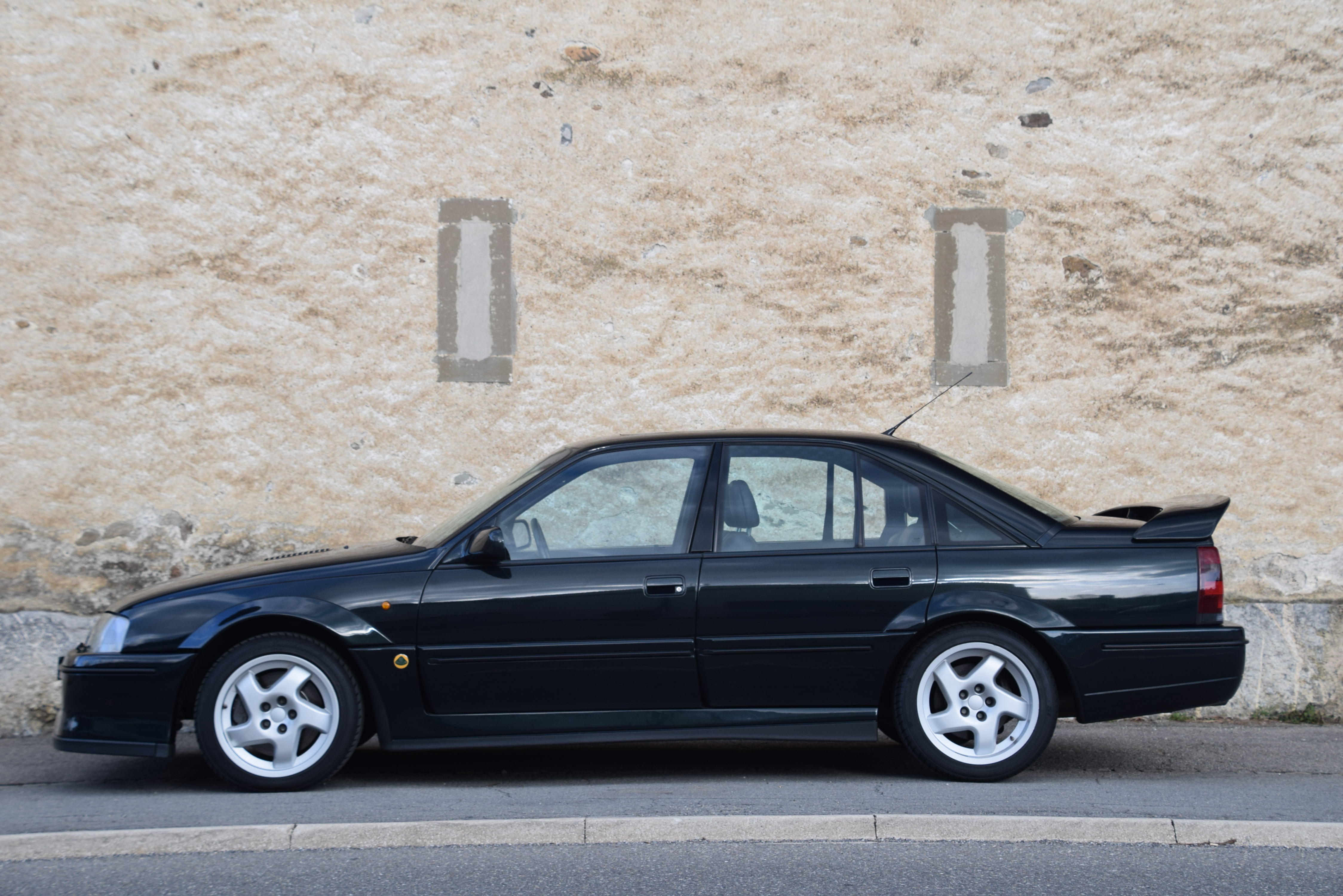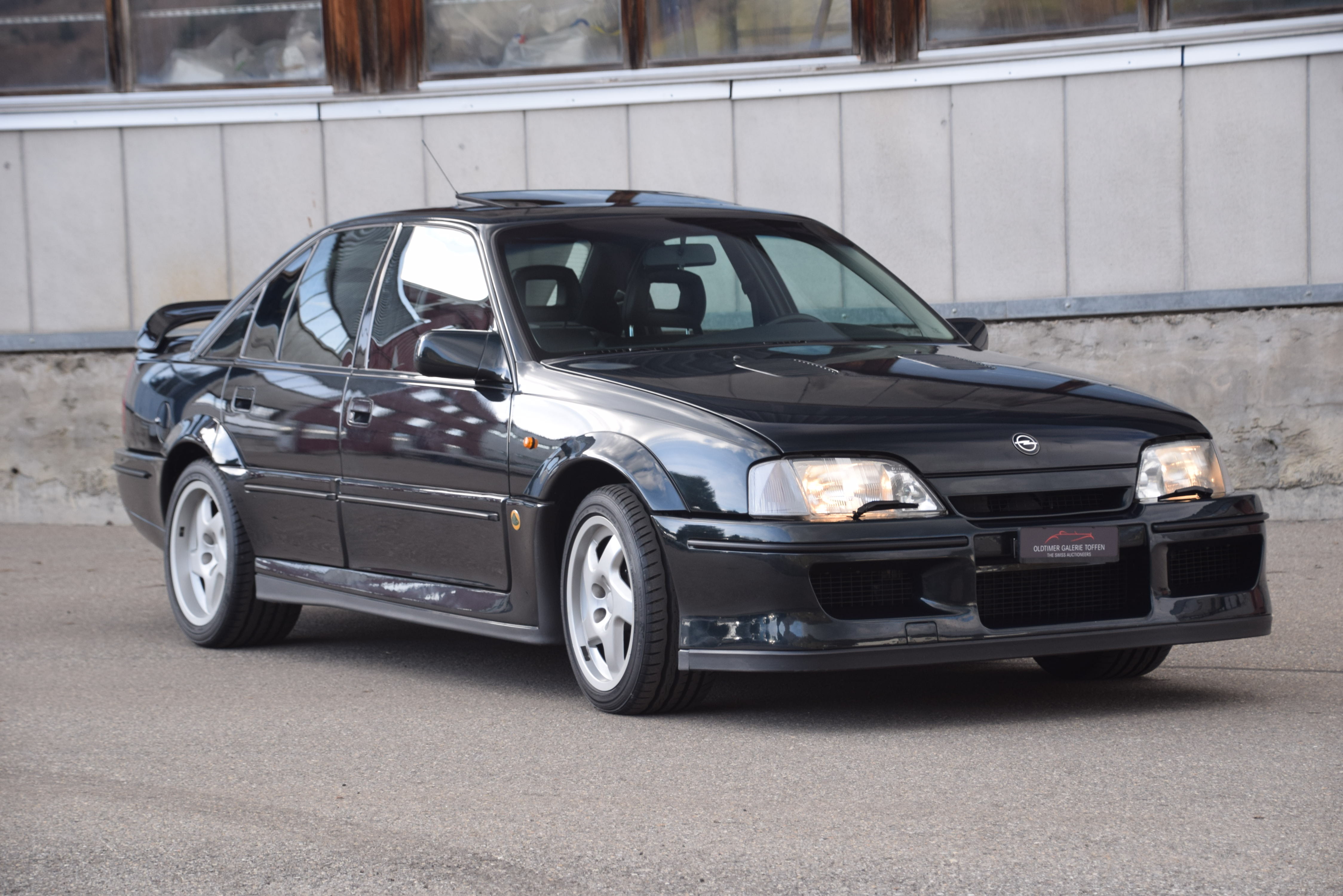“Youngtimers” have been popular in the automotive news segment over the past few months, as a greater appreciation for cars just turning “vintage” has set the market ablaze. Within that category, automotive collaborations between manufacturers in the 80s and 90s produced some of the most memorable and, consequently, the most sought creations today. There was the Yamaha-powered Taurus SHO, the Mercury Marine-powered Corvette ZR-1, the Porsche-built Mercedes-Benz 500E and Audi RS2, Lamborghini had a hand in the BMW M1, and of course there was the Cosworth-built….everything, from Escorts to 190Es to Audi RS4s and RS6s. But one of the hottest cars from the period was, undoubtedly, the Lotus-built, Corvette-gearboxed Opel Omega/Vaxhaull Carlton twins.
Lotus was majority-owned by General Motors in the early 1990s, which led in part to the “Handling by Lotus” Isuzu Imark and Impulse models. Lotus, in turn, got an engine for their small Elan from the Japanese manufacturer which worked in partnership with GM. But their best work was certainly their last joint venture before GM sold them off to Bugatti in 1993. For the Omega/Carlton, Lotus took the production 3.0 inline-6 and punched it out to 3.6 liters, while fiddling with the 24V head from the Carlton GSi. Then, they hooked it up to a 6-speed manual ZF borrowed from the General’s parts bin. Also borrowed was a limited-slip rear end from GM’s Australian division, Holden. Then, they slapped not one, but two turbochargers on it. Brakes were Group C units employed from AP Racing. The result? A crushing 370 plus horsepower and over 400 lb.ft of torque from the C36GET produced the fastest sedan in the world:



